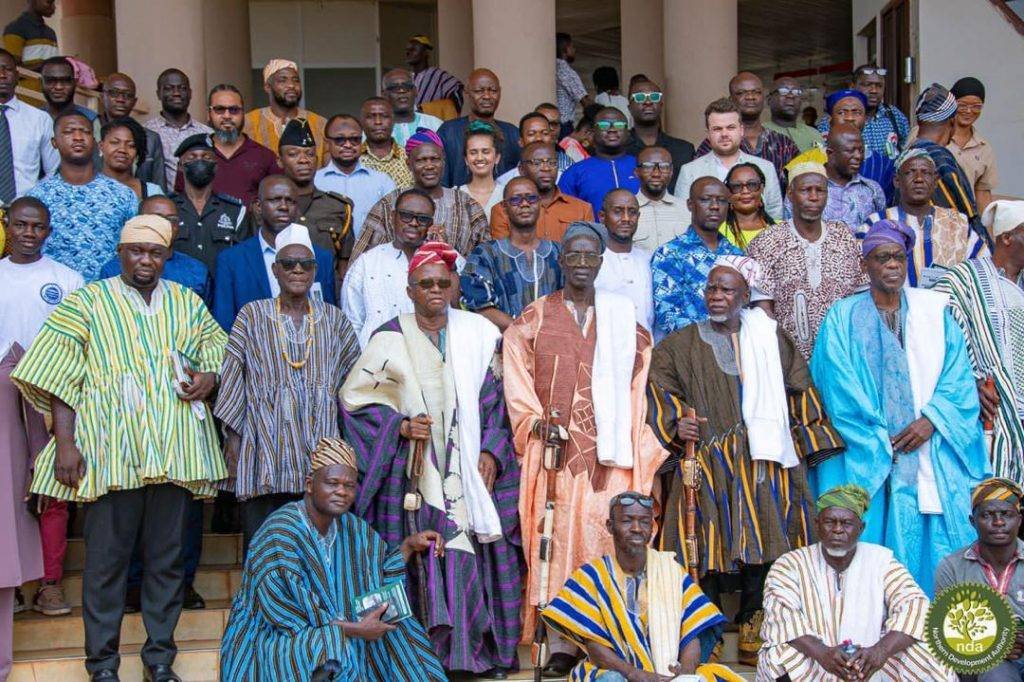
In two previously published articles in the Times it was established that among the linguistic debris at Babel the Arabic language is the mother of languages. In this article, we buttress that stand by tracing Biblical words (Hebrew and Aramaic) and their meanings to Arabic. Quoting a source about some of the uniqueness of Arabic we read: “The language of the people of Arabia is a member of the south Semitic group and has remained more stable than the other Semitic language. It has therefore proved useful in improving the understanding of many expressions and words in the ancient Hebrew of the Bible”. (Insight on the scriptures, Watch Tower Bible).
Without mincing words let me begin the discussion as follows: The word ADAM, name of our progenitor, occurs severally in the Bible literally and metaphorically. It is pronounced as Aadam in the Arabic language. It derives from the word Adiim meaning surface of the earth. Thus, Adam means one created by God from the surface of the earth. This should be so for the fact that it contains top soil rich in minerals. Adam can also mean brownish colour suggesting that our father Adam was probably brownish in colour. The Garden of Eden is believed to be the luxurious garden where Adam was placed by God to enable him live comfortably. (Gen. 2:8)
The word Eden traces to the Arabic word Aden whose root is Adana, meaning to abide in a place. Meaning that Aden means a place that is everlasting. In other words, the Garden of Eden was an everlasting garden. The third word is Noah, the name of the Patriarch Noah. In Arabic it is Nuuh and derives from the root Naaha, meaning to wail. It is said that Noah was a wailer over his limitations as a human being. But taking into consideration the fact that Noah lived and preached amongst his people for 120 years yet could win only 80 souls, then the name befits his achievements. The wailings of the Prophet Noah are best expressed in the Holy Quran. BABEL, the name of the city (Gen. 11:1 – 2) where the only language spoken by mankind split into several other languages. It derives from the Arabic root Tabalbala, meaning to confuse. Other opinion traces its meaning to the words Baab (Door) and El (God). Meaning the door of God.
HEBREW, a word first applied to Abraham (Gen. 24:13) becomes Ebreeyun in Arabic and derives from the root Abara, meaning to cross. He crossed over from Mesopotamia, the land of great idols to Canaan the promised land where he established the worship of One God. In fulfilment of that noble goal God changed his language from Syriac, his mother tongue, to the Hebrew language, which literally means language of the man who crossed.
MARRAH, the name of the place where Moses and the Israelites found water but could not drink it because it was bitter (Gen. 15:22). In Arabic it is Murrun, meaning bitter that derives from the root Marra, meaning to be bitter. Murrun can also mean Myrrh, the bitter plant that was used by the ancients as source of their antiseptic. Myrrh and aloe woods were used in embalming the body of Christ before his burial (John 19:38). The myrrh, as the antiseptic in the ointment for embalming Christ would keep his wounds fresh from being attacked by bacteria and other biotic lives.
JACOB, the Prophet is Ya’cub in Arabic and derives from the root Aciba, that means the heel or the end of a process. Thus, he was Ya’cub for the fact that he was the second twin born to Isaac who emerged after his brother Esau. Secondly, he is said to have clung his hands to the feet of his elder brother as he emerged from the womb of his mother (Gen. 25:25).
SABBATH, mentioned severally in the Bible as the day of rest and devotion to God’s worship becomes SABT in Arabic, meaning Sabbath. It derives from the root Sabata, meaning to rest or to keep the Sabbath or Saturday. Similarly, TORAH is Tauraat in Arabic and means the Old Testament or the five books of Moses (The Pentateuch). It derives from Ataara meaning to repeat time after time. Repetition probably in recitation of the Holy book TAMAR, the name of the beautiful sister of Absalom (1 Samuel 13:1) is Tamr in Arabic meaning ripe and dried date fruits.
BETHEL (Gen 28:10), the name of the place where Jacob dreamt of seeing God’s angels ascend and descend a stair at the top of where the Lord stood. Bethel is composed of Beth (House) and El (God) and means the house of God. It traces to Arabic as Bait (House) and Allah (God). Hence, Baitullah (The house of God). The word Bait derives from the root Baata, meaning to spend the night. Thus Bait, the derived noun, means a place where you spend the night in reference to a house. But the original and most authentic Bethel is the holy shrine of Ka’bah that has continuously enjoyed the distinctive title of the House of God (Baitullah) from genesis up to day! The name ABIMELECH (Gen 20:1) the King of Egypt who took Abraham’s wife from him is composed of two words namely; Abii (My father) and Melech (King). Hence Abimelech means My Father is King. The same is in Arabic: Abii (My father) and Maalich (Is King).
PARAN (Gen 21:21) where Ishmael grew uo becomes Far’aan. The Pin English becomes F in Arabic like Palestine which is Filistin in Arabic. Farra in Arabic means to ran away and the ‘an’ means two runaways. Thus Far’aan (Paran) means the land of two fugitives in reference to Hagar and Ishmael who were expelled from the house of Abraham by Sarah and left in the barren land of Paran identified with present day Macca.
ARAMAIC: So far so good for the examples of the many Hebrew words that have been traced to Arabic root-words. Let us now pay attention to the case of Aramaic. It is now popularly accepted that Christ mostly spoke Aramaic when delivering his message to the Israelites. Traces of the Aramaic he spoke are still to be found in English translations of the Bible. Aramaic is now a dead language and is said to be spoken only in a village of Syria. The first words in this connection are Eloi, Eloi lama Sabakhtani. (Mark 15:34). Meaning My God, My God, why hast thou forsaken me. It renders into Arabic as: Ilaahi, Ilaahi lima Taraktani or Sabakhtani. Meanings of the individual Arabic words are; Ilaahi (My God), lima (why) Taraktani or Sabathtani (Forsaken me). The words Taraktani and Sabakhani trace respectively to the Arabic roots Taraka and Sabakha, both words meaning to forsake. The second Aramaic sentence is: Talitha cumi; meaning young girl (Talitha) stand up (cumi). That was on the occasion when Christ miraculously healed a sick girl. Cumi remains the same in Arabic as Cumi. In the case of a male it is Cum. Once more Cum and Cumi trace to the Arabic root Caama, meaning to stand up. ABBA, Father (Mark 14:36) is Abb in Arabic meaning the same thing.
PHARISEES belong to one of the Jewish sects that operated in the promised land during the advent of Christ. They were very much enlightened on scriptures. Call them the Jewish Philosophers. The word Pharisee becomes Farasiiyun in Arabic. The root word is Farasa; meaning to look into and become enlightened. Thus, the word Firaasa in Arabic means insight.
My noble readers will appreciate the fact that the great advantage that Arabic has over the rest of languages is that words in the other languages (Hebrew and Aramaic) can be traced to root-words in Arabic. According to Hadrat Ahmad, Founder of Ahmadyyat, Arabic more than any language on earth has not less than two and a half million root-words (Minan Al-Rahman). Little wonder it has become the undisputed mother of all languages including Sanskrit of India.
Conclusion
Hebrew and Aramaic words and expressions used in the Bible are traceable to Arabic root words!
BY KHALID KOFI AHMAD
The post Hebrew and Aramaic words in the Bible traced to Arabic appeared first on Ghanaian Times.
Read Full Story

















Facebook
Twitter
Pinterest
Instagram
Google+
YouTube
LinkedIn
RSS